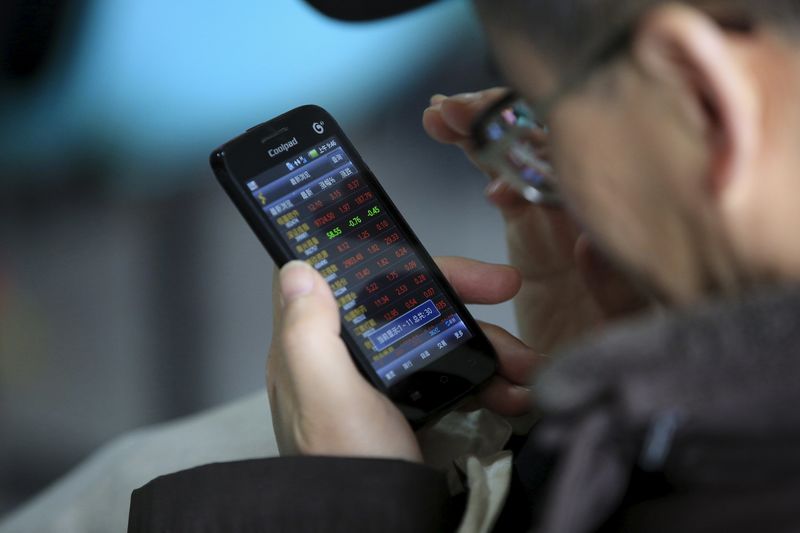SHANGHAI (Reuters) - China stocks softened on Friday morning, weighed down by the banking sector, as Beijing's plan to allow debt-to-equity swaps by commercial lenders was viewed by some investors as being largely negative.
But the mood was more upbeat in Hong Kong, where shares drew some support from stronger-than-expected monetary stimulus from the European Central Bank (ECB).
The blue-chip CSI300 index (CSI300) fell 0.2 percent, to 3,007.57 points by lunch break, while the Shanghai Composite Index <.SSEC> lost 0.3 percent, to 2,797.84 points.
Banks led the fall, with the banking sector sub-index <.CSI300BI> losing more than 1 percent.
Sources told Reuters late on Thursday that China plans to ease banks' bad debt burden by allowing them to swap non-performing loans (NPL) for equity in borrowers.
Although the move is seen as a step to avoid an NPL blow-up in China as the economy cools, it also raises concerns over Beijing's commitment toward structural reforms, and a possible weakening in banks' financial health.
"My take is that it's definitely bad for banks," said Shen Weizheng, fund manager at Shanghai-based Ivy Capital.
Becoming a major shareholder of a struggling business means a bank is assuming responsibilities it shouldn't take, including liabilities to other parties, he said.
"Very likely, banks will sit on a pile of worthless assets, and the practice also encourages borrowers to dodge their liabilities."
Most banks extended the previous day's falls on Friday. Shanghai Pudong Development Bank <600000.SS> slumped 8.5 percent, after the company announced a share private placement plan, and its shares resumed trading following a month-long hiatus.
Most sectors fell but there were some signs of life again in resources shares <.CSI300MT>, although many analysts believe the rebound in commodity prices won't last as the economy remains wobbly.
Underscoring fragile confidence, China's outstanding margin loans fell to the lowest level in 15 months, showing stock investors have used the recent rally to reduce their leverage.
In Hong Kong, the Hang Seng index (HSI) added 0.8 percent, to 20,133.78 points, while the Hong Kong China Enterprises Index (HSCE) gained 1.2 percent, to 8,521.02.
All main sectors rose, with resources shares (HSCIM) leading the charge.

(This story corrects day to Friday in 10th paragraph)
(Samuel Shen and Nathaniel Taplin; Editing by Simon Cameron-Moore)